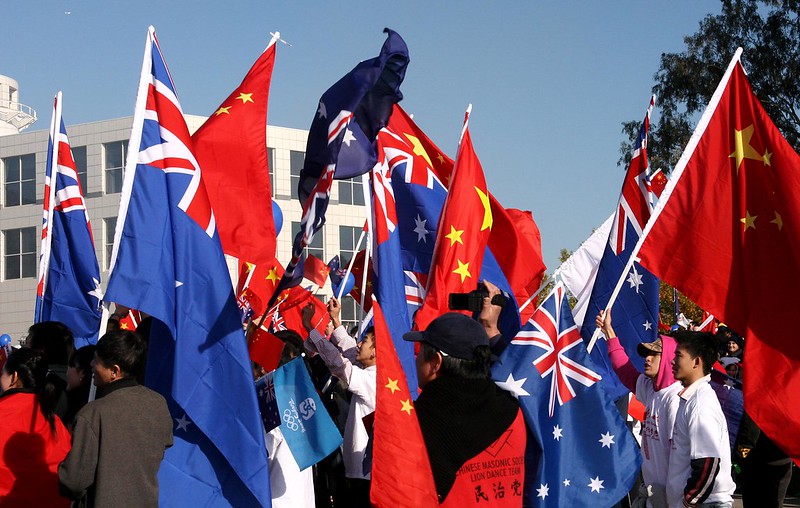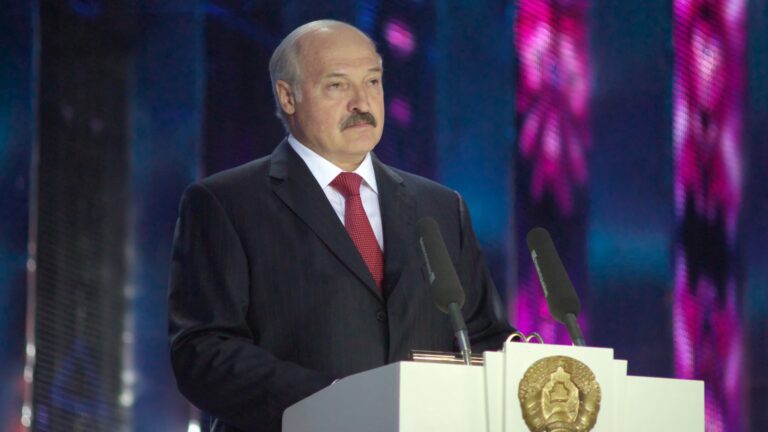
The Chinese Communist Party’s (CCP) expanding influence in Europe, particularly Central and Eastern Europe, has been the source of increasing global attention and scrutiny. For those who have been monitoring Sino-Australian relations over the past five years, it rings a familiar bell. Learning how to respond to Chinese influence has been a testing, and ongoing, process for the Asia-Pacific nation.
Concerns over Chinese influence in both Australia and Europe primarily revolve around the fostering of pro-CCP sentiment among political elites, described by former Australian Prime Minister Malcolm Turnbull as ‘foreign interference,’ as well as Chinese (especially state-owned enterprise) investment in critical infrastructure and strategic industries. This article highlights two noteworthy areas where Australia has counteracted Chinese influence that can serve as lessons to Central and Eastern European countries.
Screen and Block Chinese FDI in Strategic Industries and Critical Infrastructure
China has been a major contributor of foreign direct investment (FDI) in Australia, investing €24.36bn in 2016-2017. Nearly half of this investment has come from Chinese SOEs. Large-scale infrastructure, such as the Port of Melbourne (partial ownership) or renewable energy company Pacific Hydro, is often the target of Chinese SOE investment.
The CCP has also showed the capability to secure influence in Central and Eastern Europe using Chinese FDI. For example, the CCP was lauded in Hungary when it announced the construction of a €2.1 billion railway line from Budapest to Belgrade in 2017.
Elsewhere, Poland was the recipient of Chinese funding for a highway and two power plants. Meanwhile in the Czech Republic, CEFC China Energy went on a brief spending spree, purchasing in sectors such as soccer, finance and airlines. The CEFC turned out to be run on a Ponzi scheme and when CEFC chairman Ye Jianming disappeared in China, the Chinese state-owned CITIC bailed out the company. The bail-out was proceeded by the personal letter from Czech President Miloš Zeman, who had appointed Ye Jianming his personal advisor on China, to Xi Jinping.
The example of CEFC demonstrates why there are global concerns about FDI by (allegedly) private Chinese companies as well as SOEs. Tech company Huawei has found itself at the centre of this global dispute. In Australia, Huawei and fellow Chinese tech corporation ZTE were denied access to a nation-wide rollout of 5G infrastructure due to apprehension about their potential susceptibility to the Chinese state’s influence.
This episode accompanied the implementation of numerous new legal and structural developments by the Australia government over the past two years to combat an influx of Chinese FDI in ‘critical industries’.
First, the Foreign Investment Review Board (FIRB), which is responsible for advising the Treasury about foreign takeovers and serves as the Australia’s primary screening mechanism, was reinvigorated and began to take a tougher stance on Chinese investment. The FIRB has also been proactively developing its understanding of FDI and foreign influence through interaction with U.S. and U.K. governments.
In 2018, Australia passed the Security of Critical Infrastructure Act, which targets sabotage, espionage and coercion in the electricity, gas, water and port industries. The Act was designed to provide a framework for managing risks to national security relating to these sectors. Specifically, this meant greater transparency in ownership and operations, and increased channels of cooperation and collaboration between the government and owners and operators.
In addition, the government introduced the Telecommunications Sector Security Reforms (TSSR), which obliged all telecommunications carriers and affiliates to improve their protection of networks and facilities from unauthorized access and interference. It also reformed the landscape of agricultural investment by restricting the sale of agricultural land to domestic bidders for the first 30 days before being opened to foreign investors.
The results of this strict approach to FDI have been visible. In 2016 Australia blocked the €6.26bn purchase of energy provider AUSGRID by CCP SOE State Grid Corp and Hong Kong business Cheung Kong Infrastructure, while in 2018 it rejected the €8.6bn proposed acquisition of Australian gas pipeline provider APA Group by the same Hong Kong consortium.
The EU’s proposed Europe-wide framework for screening FDI is a step in the right direction, as it encourages FDI information sharing for nations with screening policies. However, it does not provide a real screening mechanism with the power to block problematic FDI for each member state. It leaves the creation and implementation of any screening measures up to the EU member states. While there has been movement towards screening policies in some countries, e.g. the Czech Republic, which is drafting a rather strong mechanism, there is an absence of the urgency and extensiveness shown by Australia.
Increase Transparency in Political Relations with Foreign Entities
Publicity and concern about Chinese influence in Australia reached its height in 2016-17 after the discovery that powerful CCP affiliates in Australia used political donations to establish connections with Australian political elites. The watershed moment occurred when Labor Senator Sam Dastyari was exposed for receiving donations to fund personal legal fees by Chinese property developer and frequent political donator, Huang Xiangmo. Dastyari also gave Huang counter-intelligence information and publicly opposed Labor Party policy on the South China Sea Dispute during a joint press conference with Huang.
From 2012-16 Huang donated at least €1.25m to numerous Australian politicians on either side of the political aisle. These included notables such as Trade Minister Andrew Robb and Prime Minister Tony Abbot. Huang was President of the Australian Council for the Promotion of Peaceful Reunification of China (ACPPRC), an organization overseen by the CCP’s United Front Work Department. The Australian Home Affairs Department has raised significant concerns over Huang’s CCP links and motivation for advancing CCP interests in Australia.
China’s cultivation of Central and Eastern European elites begins with national leaders and has been enhanced by the 16+1 platform. It then trickles down through economic, political, academic and journalistic circles. The goal of this influence is the same as in Australia: to try and spread a pro-China narrative through society.
Nowhere is this influence more evident than with Czech President Miloš Zeman who is one of the most vocal pro-Chinese voices in the Czech Republic. Zeman was so infatuated by the Chinese that in 2015 he hired then Chairman of CEFC China Energy Company Ye Jianming to be his special economic advisor on China. Unsurprisingly, this appointment preceded the aforementioned investment spree by CEFC in the Czech Republic. Zeman also defended Huawei and publicly rejected a warning against the company’s products issued by the Czech National Cyber and Information Security Authority in late 2018.
Hungarian Prime Minister Viktor Orbán has also been publicly cozying up to China in the last few years. As showed by ChinfluenCE research, Orbán and his FIDESZ party used to be fierce China bashers while in opposition; that changed in 2010 with their election victory and announcement of the ‘Eastern Opening’ policy. The debate on China in Hungary then turned one-dimensional and pragmatic, as both right and left wing Hungarian parties silently agree on the importance of China as an economic partner while the issues of human rights and values have almost completely disappeared from the Hungarian parliament’s agenda.
Meanwhile, Australia has been proactive and vocal in responding to Chinese influence. In 2018 it introduced new espionage and intelligence laws. Malcom Turnbull stated that these laws were built on “sunlight, enforcement, deterrence and capability” and targeted “covert, coercive or corrupt” foreign influence activities. Their aim is to increase transparency in the donation process by requiring registration of all foreign donations from actors with foreign government links. Furthermore, the government introduced foreign interference as a criminal offense, along with 37 other new crimes.
The scope of these laws has since enabled the government to cancel Mr Huang’s permanent residency and deny his citizenship request, thereby expelling him from the country.
Central Europe may not have been as popular a target as Australia for direct political influence by the CCP, however the Chinese infatuation by some of the Central and Eastern Europe’s highest officials may indeed be harder to shake than those in Australia. It would be wise for Central and Eastern European countries to use Australia’s model of counter-influence as inspiration to find their own unique strategies to pushback against Chinese influence. Being an Asia-Pacific nation, Australia relies heavily on China for economic stability, yet it still managed to protect its national security interests. With this in mind, claims that economic stimulus from China prevent Central and Eastern European nations from doing the same are unconvincing.
Written by
Josh Hickman
Josh Hickman worked as an intern at the Association for International Affairs (AMO).


